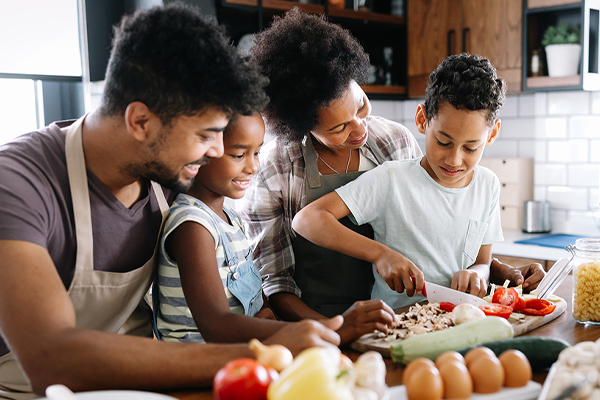Whether we say it out loud or not, most of us are probably having some level of anxiety because of COVID-19.
Media reports have found that:
- 88% of us are very or somewhat concerned about COVID-19
- 86% are worried about its spread
- 81% are worried that someone we love will be infected by COVID-19
- 37% believe they are likely to be infected themselves
- 59% worry about the impact on their day-to-day lives
- 62% worry about a serious impact on finances
“We really are in uncharted territory, and I’m not the first one to say that,” said Dr. Lance Evans, a psychologist with Augusta University Health. It’s not just being afraid of COVID-19, but also the feeling that we’ve lost control. “There are high levels of anxiety related to just the major changes people are being asked to do. We’re being asked to reorder our lives.”
What Anxiety Can Look Like
Anxiety can look like what we expect: feelings of sadness, emptiness or hopelessness; crying; and withdrawing from people we love. But it can also look like this:
- Being overly busy or involved to the point of exhaustion or not taking care of yourself
- Being irritable or impatient
- Flashes of anger and more conflict with loved ones
- Overgeneralizing or catastrophizing, where we believe everything is bad or that things are worse than they really are
- Trouble remembering things or concentrating; confusion
- Trouble sleeping or sleeping too much
- Eating too much or too little, or gaining or losing weight
- Using too much alcohol or other substances
- Other physical symptoms, like headaches, muscle aches, fatigue
We may experience some level of this, says Evans. But pay attention if these symptoms interrupt your daily life or is causing problems with people you love.
Here’s What You Can Do
First of all, one of the most important ways to cope is to give yourself permission to take a reality check of your own mood.
“Some people feel as though they have to be super strong or deny the reality of what’s going on,” said Evans. “So just take a moment to ask yourself, ‘What am I feeling?’”
Then, tell yourself that an anxious, stressed-out reaction is normal. “It is a scary thing,” said Evans. “Statistics may suggest that you may not have a super-high chance of getting COVID-19, but nevertheless you feel scared. So the question shouldn’t be whether or not you should be concerned but how you’re going to manage that fear.”
Finally, focus on what you can control. For example:
- Take advantage of this time by tackling home projects that may have been on the backburner for years. Unlike COVID-19, “that’s something you do have a say-so in,” said Evans.
- Take precautions, even if you’re worried you might look silly to others. Wash hands, carry hand sanitizer or wear a mask, as recommended.
- As soon as a negative spiral starts in our head, be intentional about changing it to a true, positive thought.
- Be kind to yourself. “Being your own harshest critic is not terribly helpful in a time like this,” said Evans. “It’s OK to be human.”
- Avoid triggers that cause emotional distress, like social media or too much news coverage.
- Be the one to check in on family members or friends. “Isolation isn’t good,” said Evans, who says he does a Zoom happy hour with friends every Saturday night. “We have the advantage of having technology that allows us to stay in touch.”
- Take the time for self-care, including eating healthy meals, putting a priority on sleep or scheduling down time.
- Walk. “It’s not only a good form of exercise, but there’s promising research that says it helps regulate the metabolism, can prevent despair, reduce risk of anxiety and depression, lowers the tendency to irritation, and boosts creativity,” said Evans.
- Meditate. Search online for meditation and relaxation techniques that focus on breathing or ways of distracting your thoughts.
“A lot of times, we do this backwards and focus too much on what we can’t control,” said Evans. “Instead, for times like these, take action where you can.”





